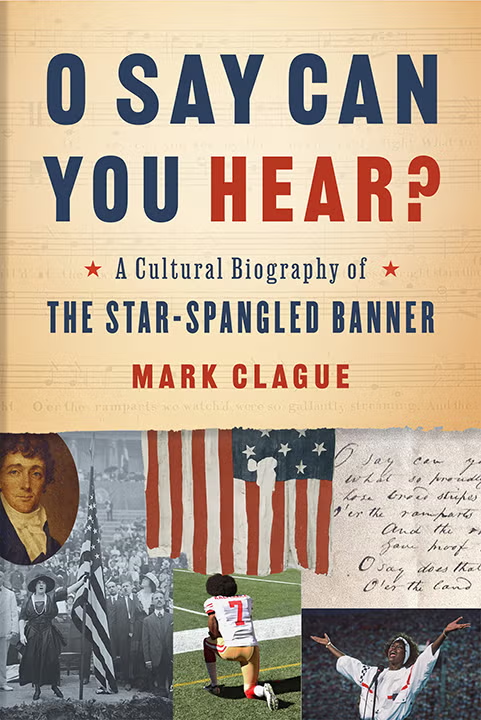O Say Can You Hear? is a fantastic text for book clubs. Conversation flows. Anyone living in the United States has a personal relationship to the song. These personal experiences resonate with the book and can inspire an engaging conversation.
You’ll undoubtedly have your own ideas for questions, but here are a few from the author to get you started.
Introductory Questions
- How do you feel personally about “The Star-Spangled Banner”?
- What does “The Star-Spangled Banner” mean to you?
- What did you learn from the book? Did something surprise you or contradict something you had previously thought to be true? Did it impact the meaning of the song for you?

More Discussion Questions
- Which chapter was the most interesting for you and why?
- Compare the original 1814 arrangement of the song to what you are used to hearing today. How is it different? How does the emotional impact of the song change for you? * See note about discussing music below.
- Do you agree or disagree with the author’s argument that protest is an important part of Francis Scott Key’s song? Is it wrong to use the anthem ritual as a platform for protest? Why?
- What is your sense of Francis Scott Key as a person? Does his biography matter to the meaning of the song today?
- Given that the lyric was written during a time when slavery was legal in the United States, does the use of “The Star-Spangled Banner” as a rallying cry in U.S. Civil War redeem the song or change its meaning?
- Do you think that the “The Star-Spangled Banner” should be performed at every sporting event?
- For you, is the nation’s anthem performed today—1) too much, 2) too little, or 3) about right?
Wrap-Up Questions
- What does patriotism mean to you? Does patriotism strengthen or weaken the nation?
- Is “The Star-Spangled Banner” an effective national anthem for the United States?
- What other songs might be considered as the U.S. national anthem? Why might they be better?
- What do you think should be done, if anything, about the nation’s anthem going forward?
Listening
Listening to music can also be a great way to jumpstart your conversation. Consider playing some of the famous anthem renditions discussed in the book and invite everyone to share an observation or two. Be sure you have a playback system that is loud enough for the group.
Versions to play include:
- José Feliciano — Youtube, Spotify, (author discussion video)
- Jimi Hendrix — Youtube, Spotify, (author discussion video)
- Roseanne Barr — Youtube
- Whitney Houston — Youtube, Spotify, (author discussion video)
- Jon Batiste — Youtube #1–solo piano, Spotify, Youtube #2-NBA
- The U.S. Army Chorus — Youtube, Spotify
Music Discussion Questions
- How did the performance make you feel?
- Did the performer enhance the meaning of the song in some way? How?
- Did this artist inspire you to feel more connected to the song and its patriotic message? Did it instead take away from that message? Why or why not?
- Do you know this performer’s other music? Does their anthem rendition express their overall style or musical approach? What makes you think so?
* Suggestions for Discussing Music
People can sometimes feel intimidated in discussing music because they are afraid to get things wrong or to not sound sophisticated enough. Encourage your group to share obvious and simple commentaries: is it loud or soft, fast or slow, happy or sad? What words come to mind as you hear the performance? What in the sound of the music generates that idea? If the discussion leader can affirm these comments, it can make people feel much more willing to share their observations. Even if you don’t feel the same way, saying “that’s interesting” or “that’s a helpful observation” can encourage others to share their thoughts. There is no right or wrong answer when it comes to art and music, especially. There is a unique, almost chemical reaction between sound and listener that produces feelings.

